 W
WIsabel Angélica Allende Llona is a Chilean writer. Allende, whose works sometimes contain aspects of the genre magical realism, is known for novels such as The House of the Spirits and City of the Beasts, which have been commercially highly successful. Allende has been called "the world's most widely read Spanish-language author." In 2004, Allende was inducted into the American Academy of Arts and Letters, and in 2010, she received Chile's National Literature Prize. President Barack Obama awarded her the 2014 Presidential Medal of Freedom.
 W
WRoberto Ampuero is a Chilean author, columnist, and the former Minister of Foreign Affairs of Chile, a position he held from March 11, 2018 to June 13, 2019. His first novel ¿Quién mató a Kristián Kustermann? was published in 1993 and in it he introduced his private eye, Cayetano Brulé, winning the Revista del Libro prize of El Mercurio. Since then the detective has appeared in five novels. In addition he has published an autobiographical novel about his years in Cuba titled Nuestros Años Verde Olivo (1999) and the novels Los Amantes de Estocolmo ) and Pasiones Griegas. His novels have been published in Latin America and Spain, and have been translated into German, French, Italian, Chinese, Swedish, Portuguese, Greek, Croatian, and English. In Chile his works have sold more than 40 editions. Ampuero now resides in Iowa where he is a professor at the University of Iowa in the Department of Spanish and Portuguese. He was a columnist of La Tercera and the New York Times Syndicate and since March 2009 has been working as a columnist for El Mercurio. Between 2013 and 2014 he was Minister of Culture in the government of Sebastián Piñera.
 W
WJorge Marcos Baradit Morales is a Chilean writer, the author of the bestselling trilogy Historia secreta de Chile.
 W
WPía Barros Bravo is a Chilean writer, best known for her short stories. She is associated with her country's literary Generation of '80.
 W
WÁlvaro Bisama Mayné is a Chilean writer and literary critic. He was named as one of the best young writers in Latin America by the Hay Festival Bogota.
 W
WAlberto Blest Gana was a Chilean novelist and diplomat, considered the father of Chilean novel. Blest Gana was of Irish and Basque descent.
 W
WRoberto Bolaño Ávalos was a Chilean novelist, short-story writer, poet and essayist. In 1999, Bolaño won the Rómulo Gallegos Prize for his novel Los detectives salvajes, and in 2008 he was posthumously awarded the National Book Critics Circle Award for Fiction for his novel 2666, which was described by board member Marcela Valdes as a "work so rich and dazzling that it will surely draw readers and scholars for ages". The New York Times described him as "the most significant Latin American literary voice of his generation".
 W
WMaría Luisa Bombal Anthes was a Chilean author. She was the daughter of Martín Bombal Videla and Blanca Anthes Precht. Her work is now highly regarded, incorporating themes of eroticism, surrealism and feminism, and she ranks among a small number of Latin American female authors whose works received worldwide acclaim. She was a recipient of the Santiago Municipal Literature Award.
 W
WMarta Brunet, was a Chilean writer. She was a recipient of the National Prize for Literature.
 W
WFrancisco Coloane Cárdenas was a Chilean novelist and short fiction writer whose works have been translated into many languages. Some of his books were adapted to theatre and film.
 W
WMariana Cox Méndez was a Chilean writer, feminist, essayist and novelist. In addition to novels and short stories, she wrote pieces in the newspaper El Mercurio, La Union, and La Nación. She was condemned and criticized by Chilean society because she wrote for the media. Her work can be framed within the so-called feminismo aristocrático, which includes her contemporaries such as Inés Echeverría Bello, María Mercedes Vial, Teresa Wilms Montt, María Luisa Fernández de García Huidobro, and Ximena Morla Lynch. Her second marriage was to Juan Stuven González. She had a son, Ivan.
 W
WMaría de la Cruz Toledo was a Chilean political activist for Women's suffrage, a journalist, a writer, and a political commentator. In 1953, she became the first woman ever elected to the Chilean Senate.
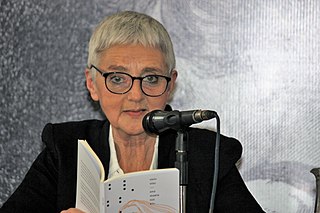 W
WAna María del Río is a Chilean literature professor, feminist writer, and novelist. Her honors include the Santiago Municipal Literature Award and the María Luisa Bombal Award.
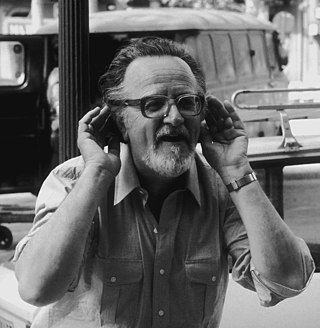 W
WJosé Manuel Donoso Yáñez, known as José Donoso, was a Chilean writer, journalist and professor. He lived most of his life in Chile, although he spent many years in self-imposed exile in Mexico, the United States and Spain. Although he had left his country in the sixties for personal reasons, after 1973 he said his exile was also a form of protest against the dictatorship of Augusto Pinochet. He returned to Chile in 1981 and lived there until his death.
 W
WVladimiro Ariel Dorfman is an Argentine-Chilean-American novelist, playwright, essayist, academic, and human rights activist. A citizen of the United States since 2004, he has been a professor of literature and Latin American Studies at Duke University, in Durham, North Carolina, since 1985.
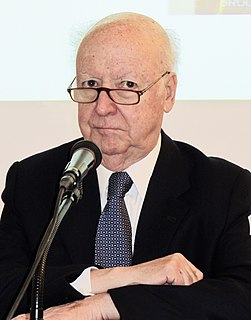 W
WJorge Edwards Valdés is a Chilean novelist, journalist and diplomat. He was the Chilean ambassador to France during the first Piñera presidency.
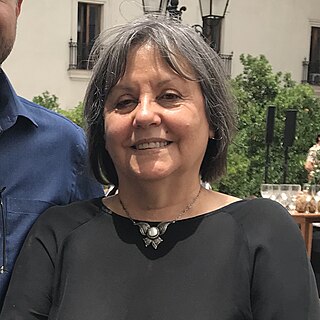 W
WDiamela Eltit is a Chilean writer and university professor. She is a recipient of the National Prize for Literature.
 W
WAlberto Felipe Fuguet de Goyeneche is a Chilean author, journalist, film critic and film director who rose to critical prominence in the 1990s as part of the movement known as the New Chilean Narrative. Although he was born in Santiago, he spent his first 13 years of life in Encino, California. He was among the fifty Latin American leaders selected by Time Magazine and CNN in 1999, and he appeared on the front page of Newsweek Magazine in 2002.
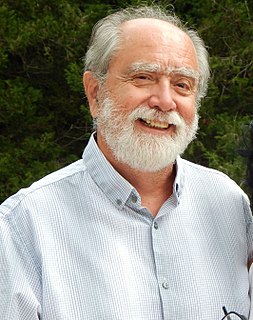 W
WGustavo Gac-Artigas is a Chilean American writer, playwright, actor, theater director and editor. Born in Santiago, Chile, he has lived in New Jersey since 1995. He is a correspondent member of the North American Academy of the Spanish Language.
 W
WCarla Guelfenbein Dobry is a Chilean writer, winner of the Alfaguara Novel Prize in 2015 for her book Contigo en la distancia. Guelfenbein has published six novels; The most recent one is called La estación de las mujeres and it was published in April 2019.
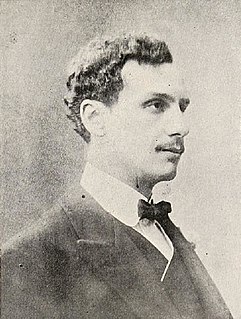 W
WAugusto Goemine Thomson, who adopted the pseudonym Augusto d’Halmar was a Chilean writer who earned the National Prize for Literature in 1942.
 W
WJorge Inostrosa Cuevas was a Chilean novelist, biographer, journalist, and screenwriter for radio, theater, and television. By his own account, "he lived to write and for what he gained from writing." Upon his death, he had more than 30 titles under his belt, as well as lyrics, poems, and a significant number of scripts for film, radio, and television.
 W
WPatricio Jara Álvarez is a Chilean writer and journalist.
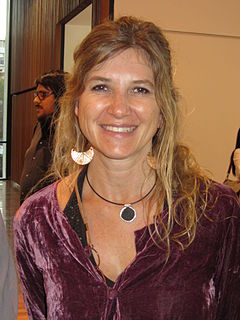 W
WAndrea Jeftanovic is a Chilean author, sociologist and academic.
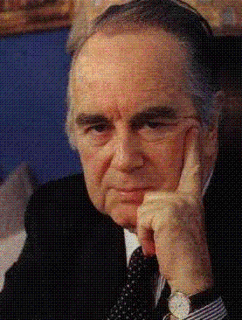 W
WEnrique Eduardo Lafourcade Valdenegro was a Chilean writer, critic and journalist from Santiago.
 W
WJosé Victorino Lastarria was a Chilean writer, legislative deputy, senator, diplomat, and finance minister.
 W
WPedro Segundo Mardones Lemebel was an openly gay Chilean essayist, chronicler, and novelist. He was known for his cutting critique of authoritarianism and for his humorous depiction of Chilean popular culture, from a queer perspective. He was nominated for Chile's National Literature Prize in 2014. He died of cancer of the larynx on 23 January 2015 in Santiago, Chile.
 W
WBaldomero Lillo was a Chilean Naturalist author, whose works had social protest as their main theme.
 W
WCamilo Marks is a Chilean human rights lawyer, academic, writer, and literary critic.
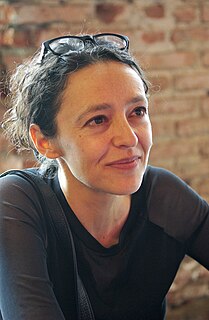 W
WLina Meruane Boza is a Chilean writer and professor. Her work, written in Spanish, has been translated into English, Italian, Portuguese, German, and French. In 2011 she won the Anna Seghers-Preis for the quality of her work, and in 2012 the Sor Juana Inés de la Cruz Prize for her novel Sangre en el ojo.
 W
WSergio Missana (1966) is a Chilean novelist, journalist, scholar, editor, scriptwriter and environmental advocate. He is a professor of Latin American literature at the Stanford University Overseas Studies Program in Santiago, Chile, and Executive Director of the Climate Parliament, an environmental NGO.
 W
WRosario Orrego Castañeda, also known as Rosario Orrego de Uribe, Rosario Orrego de Chacón, and by her pseudonym Una Madre, was a Chilean novelist, poet, editor, and educator. She is considered Chile's first woman novelist, a pioneer in the poetic field in that country, and one of the forerunners of women's literature in Hispanic America.
 W
WFrancisco Ortega is a Chilean journalist, novelist, short story writer, screenwriter, and editor.
 W
WWaldo Leonidas Parra Pizarro is a Chilean lawyer, Ph.D. in Law, university professor and novelist. Author of the national bestseller Masones & Libertadores.
 W
WFrancisco Ismael Segundo Parraguez Cabezas, or simply Ismael Parraguez was a Chilean musician, Normal teacher, poet, and novelist. He was known for being the creator of the Orfeón Chileno in 1914, during the centennial of the Battle of Rancagua and the children's poem Los pollitos dicen, which he published on his 1907 book Poesías Infantiles. Parraguez was also known by the pseudonym of Misael Guerra.
 W
WMagdalena Petit Marfán was a Chilean writer, notable for her popular novels La Quintrala, Los Pincheira and Los Hijos del Caleuche, inter alias. Also she wrote theater pieces, essays and biographies. She was a recipient of the Santiago Municipal Literature Award.
 W
WHernán Rivera Letelier is a Chilean novelist. Until the age of 11 he lived in the Algorta (Chile) saltpeter mining town. When it was closed down, he and his family moved to Antofagasta, where his mother died. His siblings went to live with his aunts. He stayed in Antofagasta, alone, until he was about 11. To survive, he sold newspapers. Later he worked as a messenger for Anglo Lautaro Nirate Company, until his thirst for adventure led him to spend three years traveling in Chile, Bolivia, Perú, Ecuador and Argentina. He returned to Antofagasta in 1973 and began to work at another company, Mantos Blancos. He married a 17-year-old girl when he was 24. Later he left for Pedro de Valdivia, another saltpeter mining town. He completed his seventh and eighth years of study at night school, and at the Inacap educational institute he earned his license as a secondary education instructor. Today he lives in Antofagasta with his wife and four children. He has received the Premio Consejo Nacional de Libro twice, in 1994 and 1996. His novel El arte de la resurrección won the Premio Alfaguara de Novela in Spain in 2010.
 W
WManuel Rojas Sepúlveda was a Chilean writer and journalist.
 W
WElvira Santa Cruz Ossa was a Chilean dramatist and novelist. She was the daughter of Joaquín Santa Cruz Vargas and Carmela Ossa. She was educated in Santiago at the Convent of the Sacred Hearts. She wrote her first novel, Flor Silvestre, before the age of 20. She also wrote for the magazine, and later became the editor, of Zig-Zag. Her first play was the comedy, La Familia Busquillas (1916), followed in 1919 by El voto femenino. She produced the drama, La Marcha Funebre, in the same year. Her second novel was titled Via Crucis Sentimental.
 W
WElisa Pérez Walker, better known by the pseudonym Elisa Serrana, was a Chilean feminist, teacher, and novelist. She was a member of her country's Generation of '50, which also included Marta Jara, Elena Aldunate, Mercedes Valdivieso, and Matilde Ladrón de Guevara.
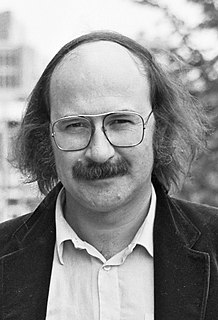 W
WAntonio Skármeta is a Chilean writer descending from Croatian immigrants from the Adriatic island of Brač, Dalmatia. He was awarded Chile's National Literature Prize in 2014.
 W
WMercedes Valdivieso was a Chilean writer, known since her earliest writings for the subversive nature of her texts. She was born in Santiago, Chile. She first wrote La Brecha (Breakthrough) in 1961, which is considered to be a landmark feminist Latin-American novel. This novel caused dismay from the reactionary segment of society and loud applause from the critics and is considered a revolutionary departure from the traditional treatment of the feminine role in marriage. Breakthrough is a novel that ends with the heroine's awareness that she didn't really need to depend upon a man in order to lead a fulfilling life. The book enjoyed an unexpected publishing success and went through five consecutive editions. Mercedes Valdivieso had the extreme audacity to become an innovator; she bridged the gap between romantic and domestic fiction in a society where women have been viewed as a sexless gender, icons of virtue, and depending on men to meet the necessities of life. Valdivieso also was founder and director of Adan, a men's magazine, and Breakthrough, a feminist publication, she published articles in newspapers and magazines and she gave many lectures and speeches. She taught literature at the University of Peking, at the University of Houston, at Stephen F. Austin State University in Nacogdoches,at University of St. Thomas in Houston and she was a Professor Emeritus at Rice University.
 W
WDaniel de la Vega was a Chilean journalist, poet, playwright, chronicler, and novelist.
 W
WAndrés Velasco Brañes is an economist and professor. He served as the finance minister of Chile from March 2006 to March 2010, the whole of the first presidential period of Michelle Bachelet. He is currently the Dean of the School of Public Policy at the London School of Economics.
 W
WMichael James Wilson is an American-Argentine writer based in Chile.
 W
WAlejandro Andrés Zambra Infantas is a Chilean poet, short story writer and novelist. He has been recognized for his talent as a young Latin American writer, chosen in 2007 as one of the "Bogotá39" and in 2010 by Granta as one of the best Spanish writers under the age of 35.